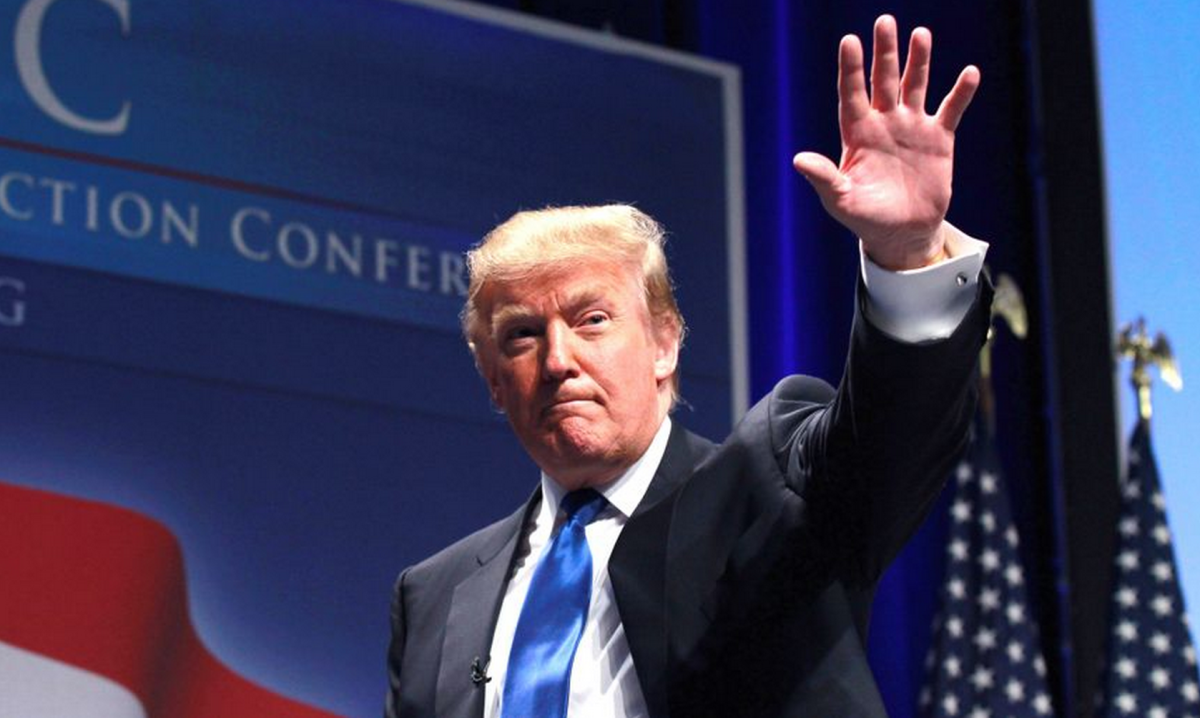Support strong Canadian climate journalism for 2025
Donald Trump's shadow loomed large as defence ministers and senior military officers from various nations gathered in Halifax on Friday amid questions and concerns about his impact on global security.
Delegates from more than 70 countries are in the city for the Halifax International Security Forum, ostensibly to talk about ways to co-operate on some of the biggest threats facing the world.
But it was Trump and the uncertainty he has brought to long-standing assumptions about global security and the international order, particularly NATO, that dominated the first day of discussions.
Defence Minister Harjit Sajjan and his British counterpart kicked off the annual summit by downplaying concerns that Trump will weaken the military alliance, which has been the bedrock of North American and European security for decades.
During the presidential election campaign, Trump repeatedly called NATO obsolete and warned the U.S. would not automatically come to the defence of a member that was attacked.
When he indicated a willingness to overlook Russia's actions in Ukraine in favour of tackling terrorism together, he also sent shockwaves through the alliance, particularly among Eastern European members, many of them former Soviet satellites who live in constant fear of an attack from Russia.
British Defence Secretary Michael Fallon told reporters there is always uncertainty with a new president and that NATO is seized with the need to spend more on defence.
"We need to distinguish between campaign rhetoric and what the new administration does in practice," he said.
But he also said he would be "stressing" with Trump's team "the importance of sticking the course with organizations that have secured the peace since the Second World War," especially NATO.
Fallon's comments echo those of NATO Secretary General Jens Stoltenberg, who has launched a concerted campaign aimed at highlighting the importance of the alliance to the United States, and vice versa.
The campaign has highlighted the degree to which NATO members are concerned about a change in U.S. policy toward the organization, where it has acted as the unquestioned leader since the alliance was created in 1949.
Peter Van Praagh, president of the Halifax forum, said he expects there would be "frank and difficult" conversations among delegates from many nations about the changes that Trump's election brings.
Among the questions facing Canada is whether it will be expected to spend significantly more on the military when Trump takes office.
The president-elect has said he would first consider whether an ally that is under attack has been pulling its weight in terms of defence spending before deciding whether the U.S. would help.
While all NATO members agreed in 2014 to spend two per cent of their gross domestic product on defence, Canada currently spends less than one per cent, which puts it in the bottom third of members.
Sajjan sidestepped questions about Canadian defence spending. He described the country's financial contributions to NATO as "quite large," but refused to say if the government plans to spend more.
Canada's position has long been that defence spending is only one way to measure a member's contributions — an argument that received some backing from NATO's top soldier on Friday.
Gen. Petr Pavel, chairman of the alliance's military committee, told The Canadian Press that the two per cent target is an important benchmark and NATO would be able to plug some holes in its capabilities if all members increased their spending.
"But at the same time, I would expand the criteria from figures only to also looking at the real capabilities," Pavel said. "Because in the end we are not fighting with figures, we are fighting with real soldiers and real equipment."
Canadian defence chief Gen. Jonathan Vance made the same argument to a Commons committee earlier this week, saying it would be "shallow" to assess a country's contributions solely on defence spending.
Pavel described Canada as one of the alliance's "leading nations" in terms of operations, exercises and other activities, citing as one example its decision to lead a NATO battlegroup in Latvia starting next year.
"So in that sense, Canada is meeting commitments and requirements. And of course we will be only grateful if all other allies are contributing the same way."



Comments